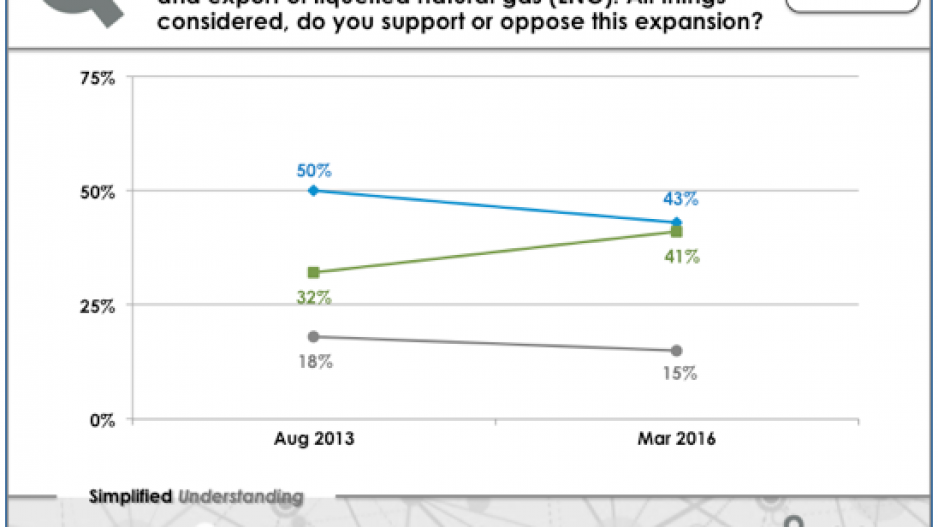Fracking is losing support in British Columbia, according to a new poll on liquefied natural gas (LNG) development from Insights West, released March 24.
British Columbians’ views on hydraulic fracturing have “hardened,” with 61% saying they don’t support the industry.
The poll found support for LNG has waned since a study conducted in August 2013, while opposition to fracking has grown.
The pollster carried out an online study between March 16 and 18, taking a random sample of 802 respondents—including 57 from Northern B.C.
Of those, 43% supported the provincial government’s goal of establishing an export LNG industry—a decrease of seven percentage points from the last poll, taken shortly after the 2013 provincial election.
Opposition to fracking, meanwhile, grew by 14 points in the 30 months between studies, to 61%. Only 23% said they said they support the process, while just over half (55%) were aware fracking takes place in British Columbia.
Three-in-five respondents had specific concerns about the fracking process, including possible water contamination (62%), its impacts on landscapes (62%) and its potential to cause earthquakes (57%).
On the benefits of fracking, 54% believed it would lead to more jobs in B.C., 51% thought it would drive foreign investment and another 54% saw LNG as a cleaner alternative to coal.
“It’s an emotional issue,” said pollster Mario Canseco, saying LNG was an “essential component” of the 2013 election. “I think everybody expected that because of how this was framed, we’d be enjoying the benefits of (LNG) already.”
He pointed out that not one of 20 coastal LNG plants has entered the construction phase.
Canseco added the issue appears to have become regionalized, with 42% saying LNG will “exclusively benefit” only some communities.
“Fewer British Columbians in 2016 believe that the LNG industry will be auspicious for every resident in the province,” he said in a release.
The study has a 3.5% margin of error.




